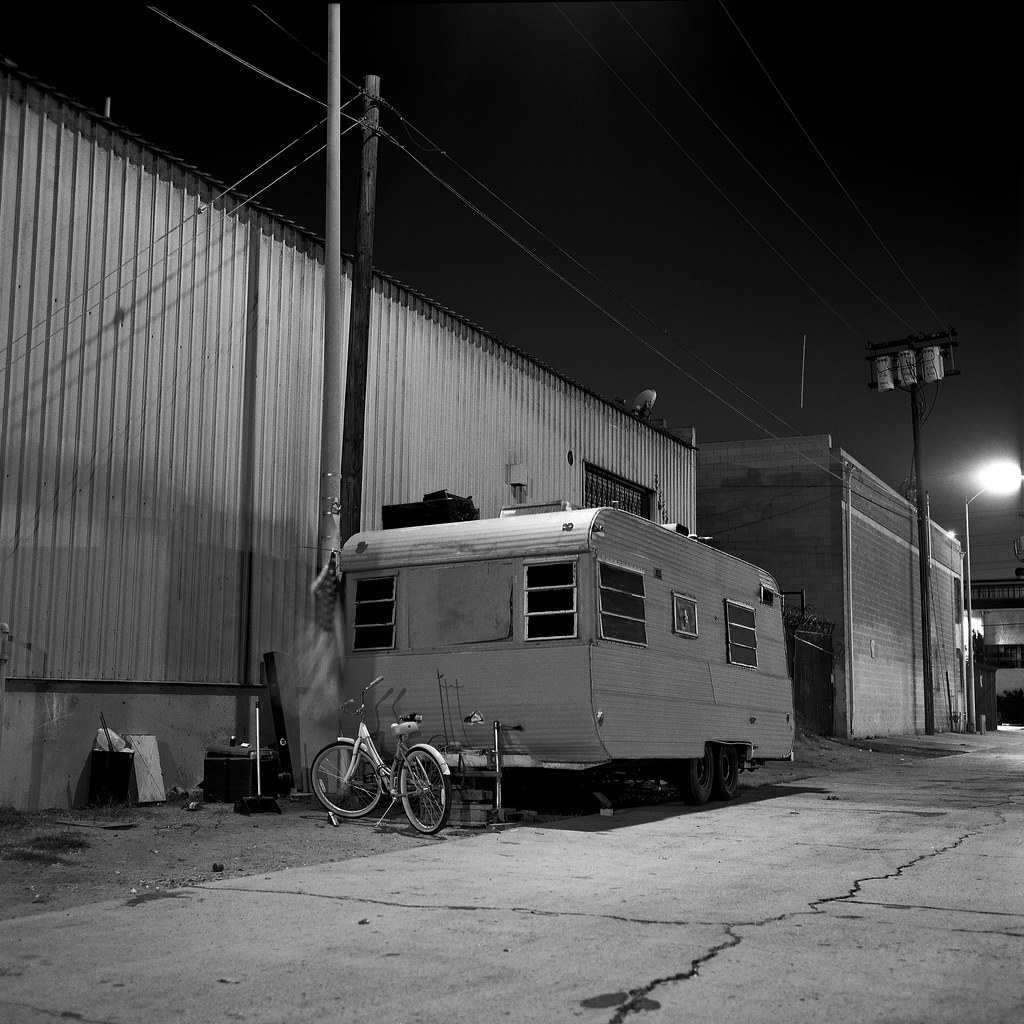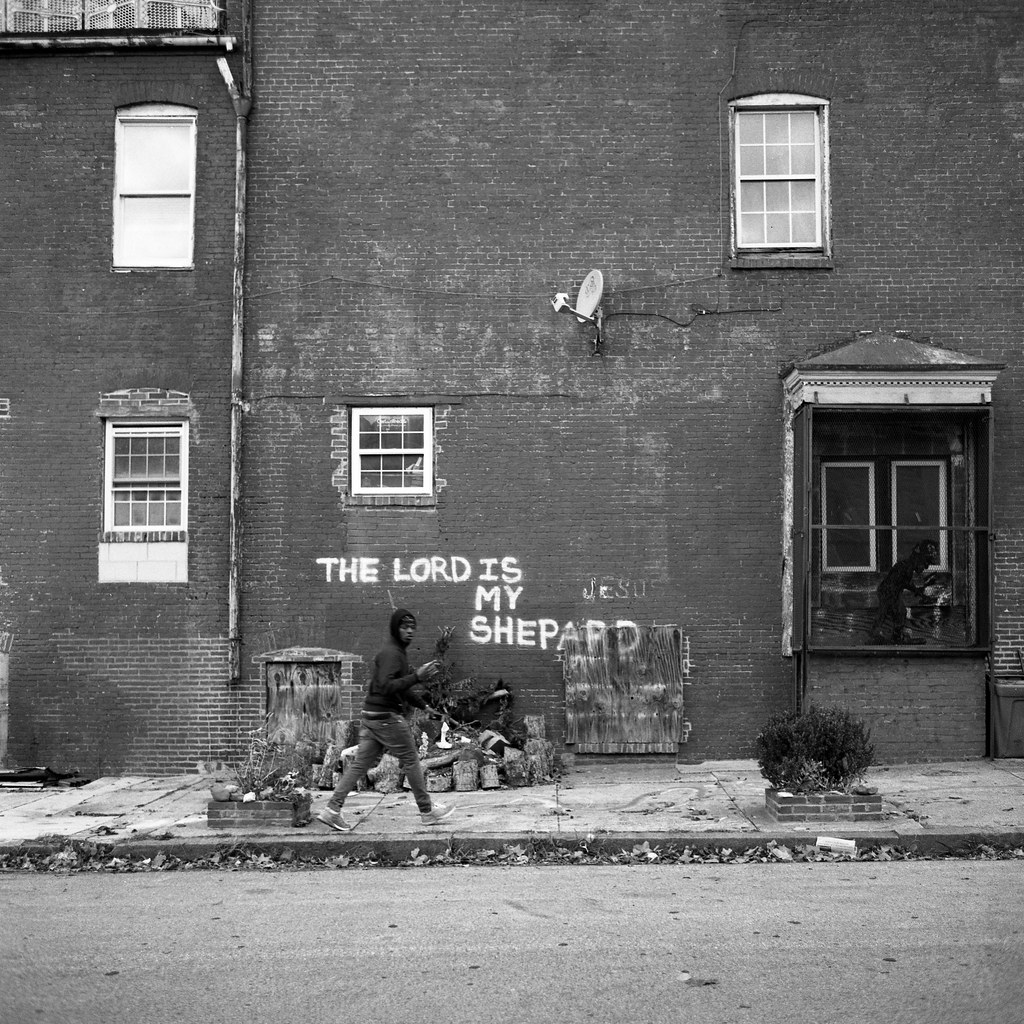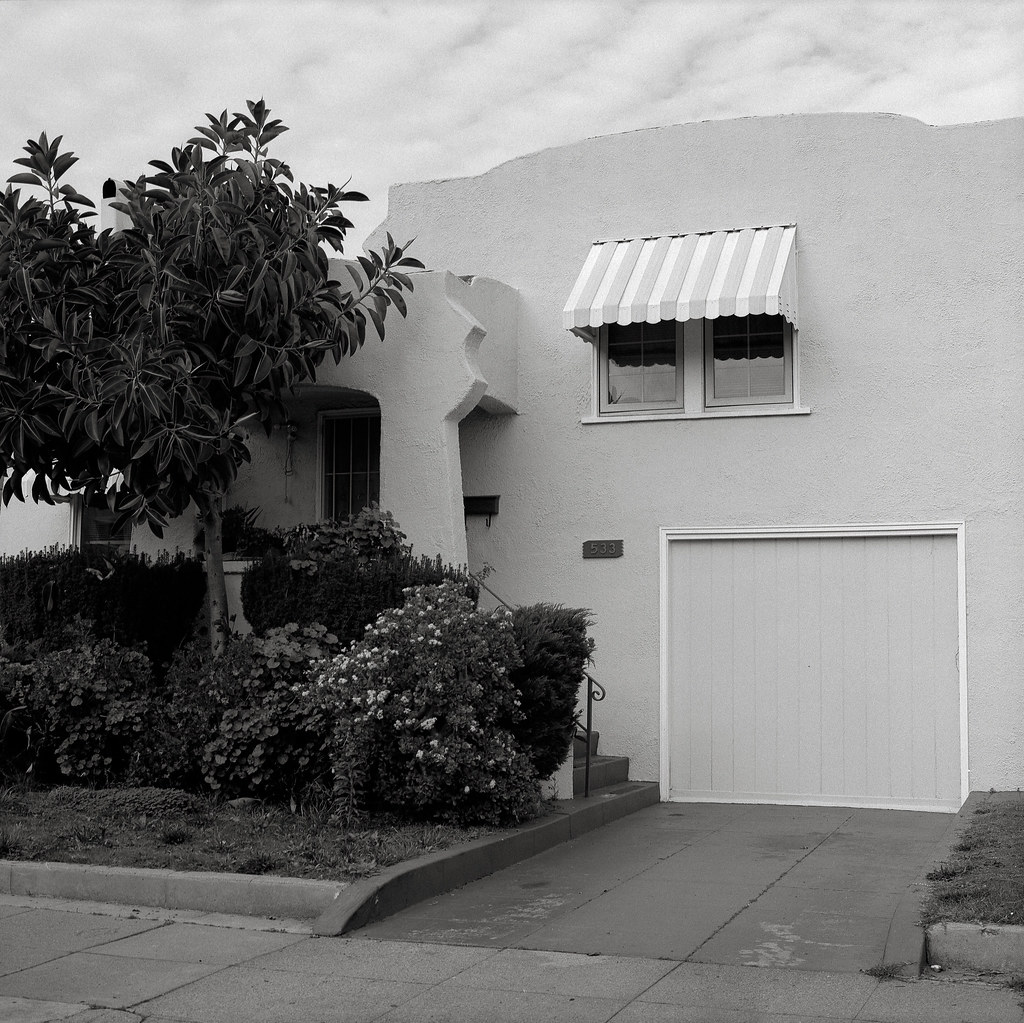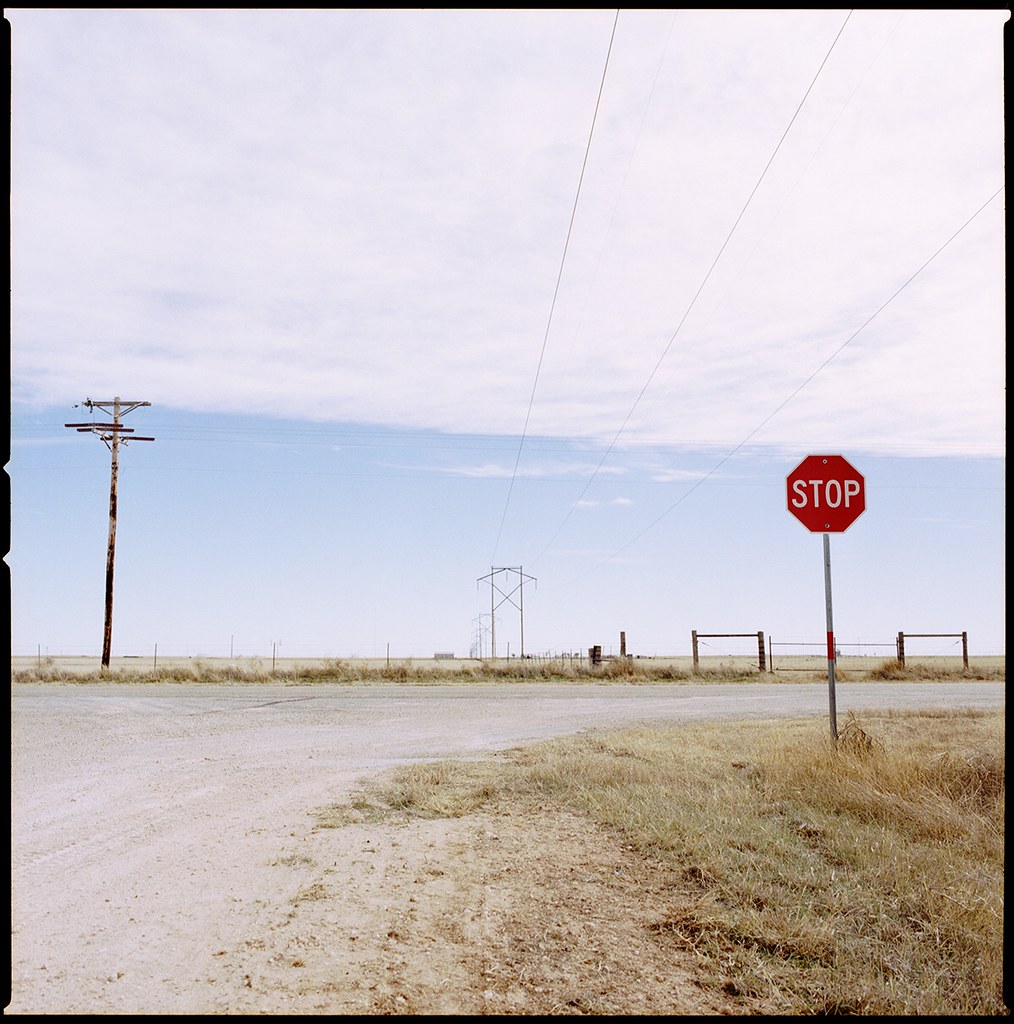
The lady in the first booth, 1956 | Dorothy Malone, who passed away yesterday at 93, on the set of Written on the Wind directed by Douglas Sirk, 1956: photo by Michael Ryerson, 20 January 2018
That ghost that came and spoke equivocally in ancient languages
was put there to confuse us
its ghostly utterance an anxious night wind across the plains
its phantasmagoric sister
was put there not so much to suggest a promiscuous way out of West Texas
with its oilwells
and highballs
as to convince us there would never be a way out
but who was it wanted to indicate to us by
the equivocation something else
don't be afraid
and therefore as a stranger give it welcome
its ghostly utterance an anxious night wind blowing across the plains

Flag on the porch [eastside, LA]: photo by Andrew Murr, 11 October 2016

Untitled [West Pratt, Baltimore]: photo by Patrick, November 2017

near Ellis, Kansas: photo by Joseph Vavak, 14 January 2018

near Ellis, Kansas: photo by Joseph Vavak, 14 January 2018

near Ellis, Kansas: photo by Joseph Vavak, 14 January 2018

House, Alameda [California]: photo by Austin Granger, 19 January 2018

Randall County [Texas Panhandle]: photo by Frank Eleveld, 19 January 2018

Albuquerque, New Mexico: photo by Jorge Guadalupe Lizárraga, 19 January 2018

Albuquerque, New Mexico: photo by Jorge Guadalupe Lizárraga, 19 January 2018

Albuquerque, New Mexico: photo by Jorge Guadalupe Lizárraga, 19 January 2018

Avondale, Auckland: photo by bobsan88, 19 January 2018

South 47th Avenue | Phoenix, Arizona: photo by Dean Terasaki, 28 October 2018

South 47th Avenue | Phoenix, Arizona: photo by Dean Terasaki, 28 October 2018

South 47th Avenue | Phoenix, Arizona: photo by Dean Terasaki, 28 October 2018

Father Crowley Overlook | Death Valley, CA.: photo by JaZwro99, 26 January 2017

Father Crowley Overlook | Death Valley, CA.: photo by JaZwro99, 26 January 2017

Father Crowley Overlook | Death Valley, CA.: photo by JaZwro99, 26 January 2017



2 comments:
One generous viewer having shared his response back channel is enough to earn a few comments for the benefit of anybody else who might happen to be curious.
If you don't know who Dorothy Malone is, you're probably not up in the crooked-number ages, that brief clear space for a bit of addled thought before all darkness closes in.
A girl from Chicago named Dorothy Maloney, she was.
How many million Maloney girls from Chicago are or were there? I went to school with all of them.
Before WOW she was known for B movies and bit parts, eg, playing the Acme Book Shop Proprietress (bookstore clerk) in The Big Sleep, who steals a wonderful scene from fake shopper Humphrey Bogart.
Take away the horn-rimmed brunette look, add in 13 years and the blond dipso-nympho look, and you can see what the grand genius Danish-German emigré director Douglas Sirk (1897-1987) made of DM in WOW.
Though Lauren Bacall was also in the cast, in Sirk's cinema of classic melodrama it's the look that tells the story.
Having come to America with his wife as an established director in 1939, he was, like so many European intellectual immigrants of that period, astonished, and more than a bit repelled, by what he found.
In Hollywood his evaluation and critique of America had to be contained within the proscribed formulae of melodramatic cinema.
His position with Universal, known for cheap trash vehicles, became a sort of reverse advantage.
He made cheap trash vehicles in which meanings are conveyed by way of mise-en-scene rather than by plotted scripting. The images overwhelm, undermine and subvert the scripted plot. Characters are color-coded to reveal repressed emotions. The result is ironic, distanced and perhaps the sharpest critique of American bourgeois society ever produced in Hollywood.
In WOW, Malone plays the unrepressed wild thing, with her red sports car and pink negligeé, who jumps out of the film in every scene she's in.
A key scene follows Marylee (Malone) through a mad loud solo jazz dance sequence culminating in pandemonium as the family patriarch, climbing the stairs to her room, dies of a heart attack.
Written on the Wind: Marylee's Mambo
Like all Sirk's films, WOW speaks to us through a visual language which takes some learning. What is shown, he - and it -- can't come right out and say.
Indirect ways of saying things are often more powerful and thought provoking than any other way.
Here and in a half dozen of his American melodramas Sirk's vision is translated to the screen by cinematographer Russell Metty (“a man with a great eye for detail and an appreciation of what I wanted”), whose contribution amounts to brilliant co-authorship.
For all its riches and rewards, Sirk ultimately believed America to be a wasteland. He lost his sight, and in 1974 returned with his wife to Europe, where he settled in Lugano until his death.
Familiar things are never seen more clearly than through the eyes of a stranger, or a child.
“When I went to the United States,” Sirk said in 1975, “I was making films about American society, and it is true that I never felt at home there, except perhaps when my wife and I lived on a farm in the San Fernando Valley. But I always wanted my characters to be more than cyphers for the failings of their world. And I never had to look too hard to find a part of myself in them”.
Such a pleasure to turn to one of these now. I have a small archive of unopened Tom Clarks, periodically visit one and am always delighted and newly informed. I'd never heard of Douglas Sirk and now have another treasure awaiting.
Post a Comment